Sigma-Aldrich receives National Institutes of Health funding for cardiovascular disease research
Sigma Life Science to Analyze Plasma Samples from Framingham Heart Study in Researching Novel Biomarkers for Cardiovascular Disease
Sigma-Aldrich® announced it has entered into an agreement with the National Heart, Lung, and Blood Institute (NHLBI) of the National Institutes of Health, and Boston University (BU) to develop methods to measure several potential biomarkers of atherosclerotic cardiovascular disease (CVD) using plasma samples from the NHLBI’s Framingham Heart Study (FHS), one of the most prestigious clinical studies in medicine. Funding for the project is provided by the NHLBI to Sigma-Aldrich under a research subaward agreement with BU.
The FHS began in 1948 as a study of more than 5,000 residents of Framingham, Massachusetts, to identify the factors that increase the risk for CVD. Since then, it has expanded to include over 14,000 participants from three generations within families. Using the results of FHS, researchers have identified a host of risk factors, including high blood cholesterol levels, elevated blood pressure, smoking, diabetes and obesity. The FHS is funded by the NHLBI and conducted in collaboration with BU's School of Medicine and School of Public Health.
Sigma Life Science, the biological products and services business of Sigma-Aldrich, plans to work with NHLBI and BU to provide for the analysis of plasma samples from 7,000 participants to investigate 180 potential biomarkers for CVD. Over the course of this five-year project, Sigma Life Science expects to develop antibody reagents for each identified target biomarker and incorporate the reagents into a multiplexed, high-throughput platform to measure the proteins of interest.
“Through this project, Sigma Life Science, the NHLBI and BU are furthering insight into a number of important CVD targets,” said Dave Smoller, President of Sigma-Aldrich’s Research Biotech Business Unit. “By embarking on this exciting effort, we believe we will help to develop the next generation of biomarker technologies for life science research and therapeutic applications, and provide greater understanding into the genetics and biological pathways of heart disease. The project is expected to facilitate the development of diagnostic tools for the early detection and prevention of CVD, as well as therapies for early treatment. We are hopeful that establishing valid surrogate biomarkers will also be useful in the development of more individualized treatments for patients.”
The new project is part of a major FHS initiative called the Systems Approach to Biomarker Research in Cardiovascular Disease (SABRe CVD), which expects to identify and validate new CVD biomarkers, which in turn could ultimately lead to the development of blood tests to identify individuals at high risk of heart disease and stroke. Only information from FHS participants who have consented to sharing their specimens and data for genetic research will be used, and no shared information will be attributed to a specific participant to protect participants' privacy. Data from these studies will be accessible to other scientists through dbGAP (Database for Genotype and Phenotype), in accordance with data-sharing policies.
Most read news
Topics
Organizations
Other news from the department science
These products might interest you
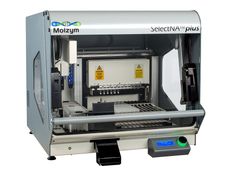
Micro-Dx™ CE IVD by Molzym
Fully automated from sample to PCR analysis
Rapid identification of bacteria and fungi without time-consuming cultivation
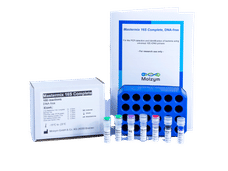
DNA-free Taq Polymerases and Mastermixes by Molzym
DNA-free reagents for unrivalled sensitivity in molecular biology
Purity that makes the difference
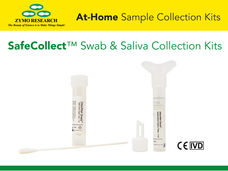
DNA/RNA Shield™ SafeCollect Collection Kits by Zymo Research
Sample collection devices for simple & safe at-home testing
Best user experience for secure self-collection
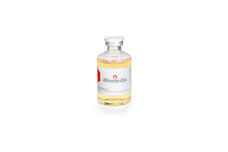
Recombumin® Elite by Sartorius
ICHQ7 cGMP-compliant albumin for biotechnological applications
Increase consistency and safety for gene therapies and vaccines
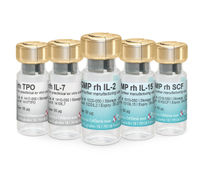
CellGenix® Growth Factors and Cytokines by Sartorius
Recombinant growth factors without animal products
Optimised cell culture for T cells and MSCs in gene therapy

Greener Alternative Products by Merck
Sustainable laboratory products for environmentally conscious research
Over 2,500 ecological alternatives to reduce your laboratory footprint

Get the life science industry in your inbox
By submitting this form you agree that LUMITOS AG will send you the newsletter(s) selected above by email. Your data will not be passed on to third parties. Your data will be stored and processed in accordance with our data protection regulations. LUMITOS may contact you by email for the purpose of advertising or market and opinion surveys. You can revoke your consent at any time without giving reasons to LUMITOS AG, Ernst-Augustin-Str. 2, 12489 Berlin, Germany or by e-mail at revoke@lumitos.com with effect for the future. In addition, each email contains a link to unsubscribe from the corresponding newsletter.
Most read news
More news from our other portals
Last viewed contents

Green tea catechins promote oxidative stress - Green tea is seen as healthy and promotes a longer life supposedly due to its high level of antioxidants: Researchers have now cast doubt on previous assumptions about how these ingredients work
Category:Parkinson's_disease
The Genetics Company Inc. enters distributorship agreement with Stratech Scientific Ltd.






















































